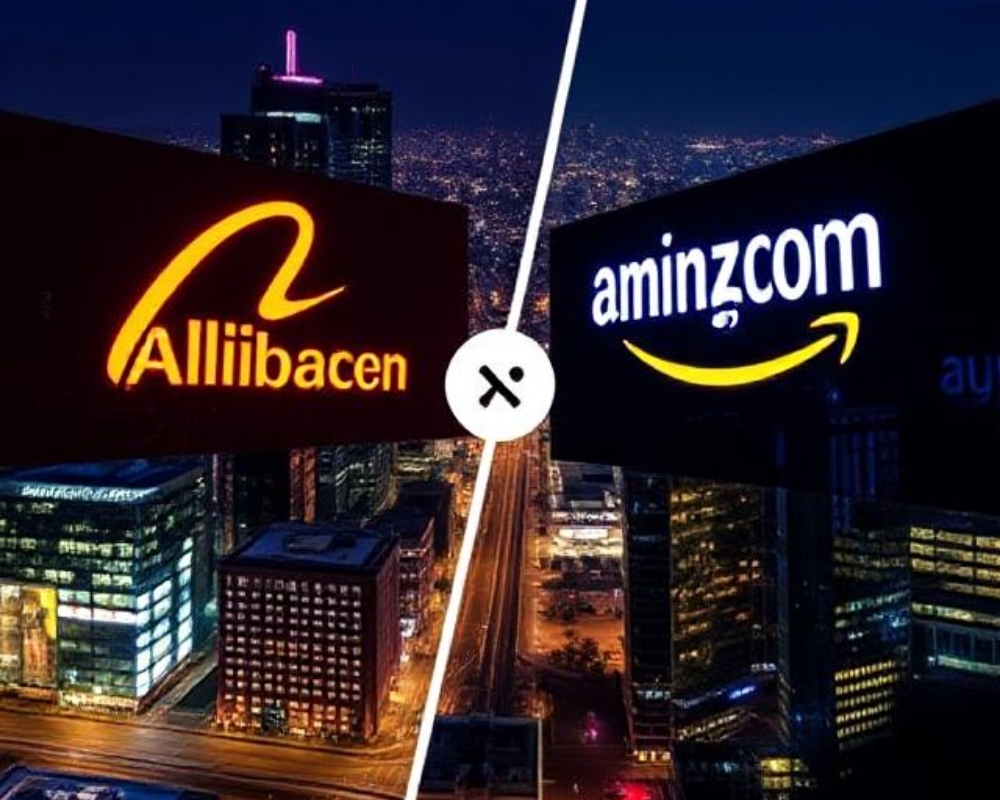Introduction
In the evolving landscape of global commerce, the B2B (business-to-business) marketplace is undergoing a digital transformation. Two dominant players, Alibaba.com and Amazon Business, have emerged as leaders in this competitive space. Both platforms offer unique strengths and cater to businesses looking to scale, source products, or expand internationally. However, as global supply chains shift and digital trade becomes more dynamic, the question arises: Who is winning the global B2B race?
The Rise of B2B Marketplaces
B2B marketplaces are no longer limited to local supplier directories or static catalogs. Today, platforms like Alibaba.com and Amazon Business offer digital storefronts, payment integration, logistics solutions, and buyer protections. This shift is driven by the demand for speed, transparency, and cost-effectiveness in international sourcing.
For small and medium-sized enterprises (SMEs), digital B2B platforms have become essential tools for accessing global markets. The ability to connect with manufacturers, wholesalers, and service providers across continents has revolutionized how business is done.
Alibaba.com: Global Sourcing at Scale
Founded in 1999, Alibaba.com is one of the world’s largest and most established B2B platforms. With millions of active buyers and suppliers across more than 190 countries, it serves as a bridge between exporters, mainly from Asia, and buyers around the world.
What sets Alibaba.com apart is its sheer scale and ecosystem. The platform supports custom orders, trade assurance, real-time negotiations, and logistics integration. Alibaba.com has built trust by offering verified suppliers and detailed company profiles, helping reduce risks for buyers.
Additionally, Alibaba.com has invested heavily in AI tools, supply chain solutions, and digital showrooms. These innovations help businesses discover the right products and streamline procurement.
Amazon Business: Convenience Meets Corporate Procurement
Amazon Business launched in 2015 as a separate branch of Amazon tailored for professional buyers. It focuses heavily on North American and European markets and is designed for organizations looking for a simplified purchasing process.
One of Amazon Business’s main advantages is the familiar Amazon interface, allowing users to quickly search, compare, and purchase. Features like multi-user accounts, tax exemption management, and detailed invoice tracking make it especially attractive for institutions, governments, and corporate buyers.
While Amazon Business lacks the same manufacturing network as Alibaba.com, it excels in last-mile delivery, compliance, and customer support, particularly in developed markets.
Comparing Strengths: Alibaba.com vs. Amazon Business
Market Reach
Alibaba.com dominates in emerging markets and manufacturing-heavy countries like China, India, and Vietnam. It offers a wide selection of custom and OEM products. In contrast, Amazon Business has strong penetration in the U.S. and EU, focusing on finished goods and consumables.
Supplier Ecosystem
Alibaba.com connects buyers with manufacturers, exporters, and wholesalers. This makes it ideal for sourcing in bulk or creating private label products. Amazon Business, on the other hand, connects mostly with domestic distributors and resellers, offering faster delivery but less customization.
Technology & Tools
Both platforms have robust digital tools, but Alibaba.com has gone further in B2B innovation, with virtual trade shows, buyer matching algorithms, and end-to-end supply chain integration. Amazon Business leads in procurement automation and ERP integration.
Role of Trademor in Supporting Global Sellers
One of the key players helping businesses succeed on Alibaba.com is Trademor, an authorized channel partner that empowers exporters to navigate the complexities of international trade. Trademor provides account setup, product listing optimization, lead generation strategies, and performance analytics for sellers looking to thrive on Alibaba.com.
With its expertise in B2B marketing and platform navigation, Trademor plays a crucial role in bridging the gap between local businesses and global buyers, especially in South Asia and the Middle East.
The Verdict: Who’s Winning?
The answer depends on your business goals:
- If you’re a manufacturer, private label seller, or international buyer seeking customization, bulk sourcing, or direct-from-factory pricing, Alibaba.com is currently leading the B2B race.
- If you’re a corporate purchaser, government agency, or institution focused on local procurement, compliance, and efficiency, Amazon Business may be your best choice.
Ultimately, both platforms are expanding rapidly and shaping the future of digital trade. Businesses would benefit from leveraging each platform according to their unique needs and market strategies.
Conclusion:
Global trade is becoming increasingly digital, Alibaba.com and Amazon Business are setting new standards in B2B commerce. While Alibaba.com leads in global sourcing and manufacturing scale, Amazon Business dominates in procurement convenience and compliance. Tools and partners like Trademor are enhancing the effectiveness of these platforms by helping sellers navigate and grow in these ecosystems. The B2B race isn’t about one winner — it’s about choosing the right partner for your journey.
